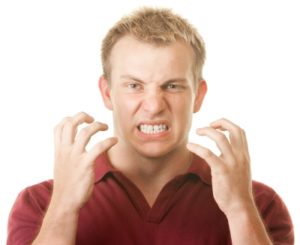Spotlight On Bruxism

Bruxism is the medical name for tooth clenching and grinding. This can occur during the day or at night with a condition known as sleep bruxism. Sufferers from sleep bruxism may also have other sleep disorders, such as snoring and sleep apnea. Mild bruxism may not require dental treatment. However, in more severe cases, bruxism can lead to headaches and jaw pain. Clenching and grinding can also damage teeth. Since bruxism is often unconscious and may happen during sleep, many sufferers are unaware of the problem. Ask your practitioner of family dental care in Bloomingdale to check if you are suffering from bruxism. Meanwhile, there are some warning signs which may indicate that you are grinding or clenching your teeth.
Indicators of Bruxism
Your teeth may be chipped, worn, flattened, or may have come loose. Ask your partner whether the sound of grinding or clenching is keeping him or her awake at night. You may experience frequent and persistent pain or discomfort. This can take the form of a jaw ache, an earache, or a dull headache, radiating out from the temples. Your tooth enamel may show signs of wear. The edge of your tongue may take on a scalloped appearance. You may find that your teeth have become more sensitive. Consult your dentist if you notice any of these symptoms.
Risk Factors for Bruxism
You may be at greater risk of bruxism if you have a more aggressive or competitive personality, or if you are under a lot of stress. Bruxism is more common in children and maybe a response to teething difficulties in some cases. Certain behaviors can increase your vulnerability to bruxism. These include smoking, excess consumption of caffeinated drinks, and the use of certain recreational drugs. Visit your dental office to learn more.
Adverse Health Effects of Bruxism
In severe cases, bruxism can cause damage to teeth and dental restorations. It may also result in facial pain and recurrent headaches. Clenching and grinding can also damage the TMJ or temporomandibular joint. Your dentist can help you learn more about the adverse health effects associated with bruxism.
